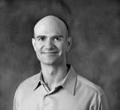I admit it — I have moments when I doubt the value of everything I do in my life. I doubt whether I’m really interested in my work. I question whether the relationships in my life are worthwhile. I seriously consider whether I’d prefer a life of solitary, cave-dwelling meditation.
I think doubt is wonderful. If I’d never stopped to ask myself whether my path was taking me in the right direction, I wouldn’t have changed my career, written my book, or done many other rewarding things.
In my experience, doubt only becomes a problem if we either (1) give it complete control of our choices, or (2) try to deny that it’s there.
Letting Doubt Do The Driving
To illustrate the first of these, I know several people who are in the habit of revamping their lives every time doubt arises. Each time they find themselves questioning whether they’re on the right path, they immediately find a new one. They leave their job, their graduate program, or their partner.
Unfortunately, they never find a perfect, doubt-free situation, so they keep flailing around in frustration. What they don’t see is that doubt is part of the human condition — it’s in our nature to question whether we’re on the right path, no matter how ideal our situation may look on the outside.
Thus, if we always flee our situation whenever doubts come up, we’ll spend our lives in a fruitless search. I think we’re better off keeping our doubt in the backseat, if you will, and listening to what it has to say — not putting it in the driver’s seat of our lives and giving it the keys.
Denying Doubt
We also run into trouble, I think, when we pretend our doubt doesn’t exist. Perhaps we don’t want the hassle of pondering whether what we’re doing is right for us, or we want others to think we’re confident and sure about where we’re headed.
I find, both in myself and in working with others, that repressing our doubts actually drains our energy, and takes away from what we can accomplish in our work. Refusing to admit we’re uncertain about what we’re doing creates tension in the body, as if we have to physically push the doubt away.
But when we admit to ourselves we’re in doubt, we release that tension. Many times, when I’ve been honest with myself about my uncertainty, I’ve found myself spontaneously relaxing my shoulders and sighing with relief.
Interestingly, often the doubt itself falls away when I acknowledge it. For instance, recently, I’ve been preparing to lead a full-day workshop. At one point, while experiencing the usual frustrations that come with getting ready for an event, I realized — with a sinking feeling — that, in that moment, I didn’t want to put on the event at all.
However, things changed when I called out my doubt. I said to myself aloud: “I don’t want to lead this workshop.” In that moment, my body relaxed, and suddenly my desire to hold the workshop and serve others with my work returned. It’s like the uncertain part of me needed to be heard — but once I gave it a hearing, it fell silent.
I invite you to try this the next time doubt creeps in — you being human and all, it’s bound to happen.
Chris Edgar is the author of Inner Productivity: A Mindful Path to Efficiency and Enjoyment in Your Work, which uses insights from mindfulness practice and psychology to help readers develop focus and motivation in what they do. You can find out more about the book and Chris’s work at www.InnerProductivity.com.

Post new comment
Please Register or Login to post new comment.